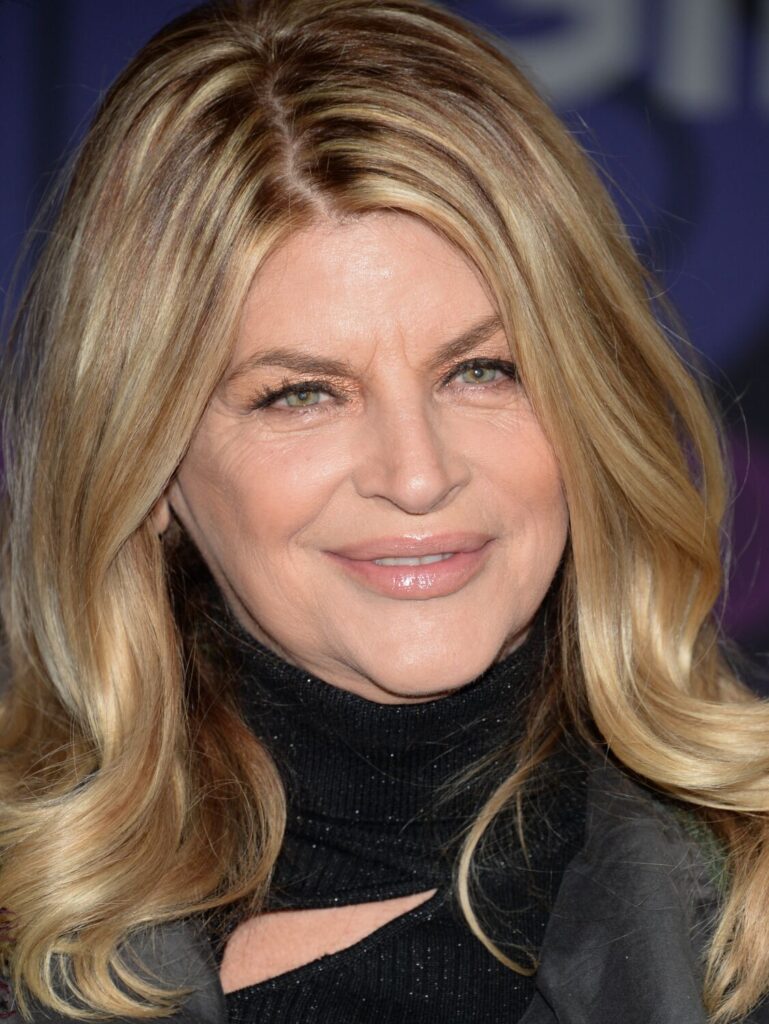When a celebrity dies, his or her religion is rarely a big part of the story. But Kirstie Alley’s identity off-screen was largely tied to being an outspoken envoy and defender of Scientology, the controversial and heavily criticized faith founded by sci-fi writer L. Ron Hubbard.
Alley, who died Monday of colon cancer at age 71, was a staunch Scientologist for more than 40 years. Below are some of her thoughts on the faith, in her own words, pulled from her 2012 autobiography and from interviews over the years.
“Scientology has been cloaked in mystery fabricated by the press, mostly,” the “Look Who’s Talking” star wrote in her memoir, “The Art of Men (I Prefer Mine Al Dente).” “It’s actually analytical and easy to understand. It does not include aliens, although I’d love to meet a few and believe we are not alone in the vastness of the universe.”
Alley wrote that her goal with the chapter on Scientology was “not to convert anyone” but to tell people why she chose it as her religion and what effect Hubbard had had on her life. “All religions,” she said, “sound a little wacky if you take them literally and if they don’t happen to be your own.”
Elsewhere in her memoir, the Emmy winner described reading Hubbard’s “Dianetics: The Modern Science of Mental Health” — a canonical text of Scientology — when she was addicted to cocaine. It was 1979, she was using all sorts of other drugs at the time and was, in her words, “a hot mess.”
“‘Dianetics’ made me aware of one distinct factor: I was really f— up and was killing myself spiritually even more so than physically,” Alley wrote. “Not only was I betraying others, but I was giving my own moral code and integrity a thrashing. So the first thing I hoped to get out of ‘Dianetics’ was a certainty of my own truths, and to become honest. I wanted to become sane and helpful, useful to the world around me. Of course I knew I’d made myself nuts by doing drugs. But what had provoked me to do them in the first place? That’s what I hoped I’d find out from Mr. L. Ron Hubbard by the end of ‘Dianetics.’”
She went on to discuss Scientology’s approach to mental health, which differs from medical best practices in that church members will not — in Alley’s words — use “psychotropic drugs, electroshock therapy, or lobotomies to get better” from things like anxiety, depression, grief and psychosis.
“It’s not because we don’t believe that all these things exist or that they are not real,” Alley wrote. “Try to tell a man he’s not chronically depressed or a new mother she doesn’t really have postpartum depression, and you might get shot. They do exist. They are real. They are painful, debilitating, gruesome, and at times unbearable. … The issue is, what do you do to get rid of them?”
Alley said she had one Scientology counseling session and never wanted to do drugs again, though she admitted that sort of result didn’t happen so quickly for many people. After later sessions, she figured out why she was depressed and that faded away too, she said.
“Apparently I was ready to confront the dreadfulness called me, and I prevailed. I never turned back. Every day I worked on some part of my screwed-up life until the anxiety dropped away,” she wrote.
Alley credited her experience with Scientology’s Narconon detox center for launching her as an actor.
“When I was straight, I had the courage and energy to try to become an actress. I owe my career to my will to stop using,” she told the media in 1990, when she was a representative for the controversial Narconon Chilocco center in Oklahoma.
That facility, which has since been shuttered, was denied certification by the Oklahoma mental health board for several years, sparking Alley to tell the Associated Press in 1991, “There is no doubt in my mind that the arrogance and irresponsibility of the mental health board will not survive the outrage of the many thousands of parents, graduates and supporters from the scientific community this decision has triggered.”
More than 30 years after getting off drugs, in 2015, Alley explained to Howard Stern what it meant for a Scientologist like herself to reach OT7 status — church shorthand for Operating Thetan, Level 7, only one level shy of the highest level of achievement that is open to Scientologists. Steps toward that goal, and OT8 above it, include counseling sessions, advanced courses, conquering the “reactive mind” and much more.
OT7, Alley told Stern, means “you have gotten rid of all the things that would create aberrative behavior in you that you don’t want.” The “Cheers” star later achieved Level 8, telling a Scientology magazine (via Rolling Stone), “Now here I stand a new OT VIII shiny, fresh, and calm… I now fully have the confront that puts me right up that damn confront scale with other Scientology Freedom Fighters!” (In Scientology, “confronting” is being able to face someone or something without avoiding the person or thing.)
Former Scientologist Leah Remini in 2016 said on her show “Leah Remini: Scientology and the Aftermath” that she spent “millions” on those kinds of steps toward achievement while she was a member of the church.
But Alley also denied the many reports — from the likes of Remini and others — that Scientology labels those who leave the church “suppressive persons” and requires members to cut off contact with them.
“I have hundreds of friends who have entered and left Scientology…,” Alley told Stern, denying that members aren’t allowed to leave the church. “You’re not shunned or chased.”
Representatives for the church of Scientology did not respond Tuesday to a request for comment on Alley’s death.

